News
Promoting the Implementation of FAO’s Global One Country One Priority Product Initiative in the Tropics

Meeting with CATAS President Dr. Sanwen Huang
Rome, 25 April 2023 – The delegation of the FAO Plant Production and Protection Division (NSP), composed of Xia Jingyuan, NSP Director and Hafiz Muminjanov, One Country One Priority Product Initiative Global Coordinator, visited the Chinese Academy of Tropical Agricultural Sciences (CATAS) and the Hainan Academy of Agricultural Sciences (HAAS), as well as the Rice, and Cotton Research Stations of the Chinese Academy of Agricultural Sciences (CAAS), from 17 to 21 April 2023.
The objective of the mission was to: meet with the Senior Leadership Teams and Chief Experts both at the academy and institute levels to provide an update on the FAO’s global One Country One Priority Product Initiative (OCOP); visit research institutes, laboratories, the FAO Reference Centre and field plots of CATAS, HAAS and CAAS; and discuss potential cooperation between FAO and CATAS, HAAS and CAAS for supporting the implementation of the OCOP Initiative’s field projects.
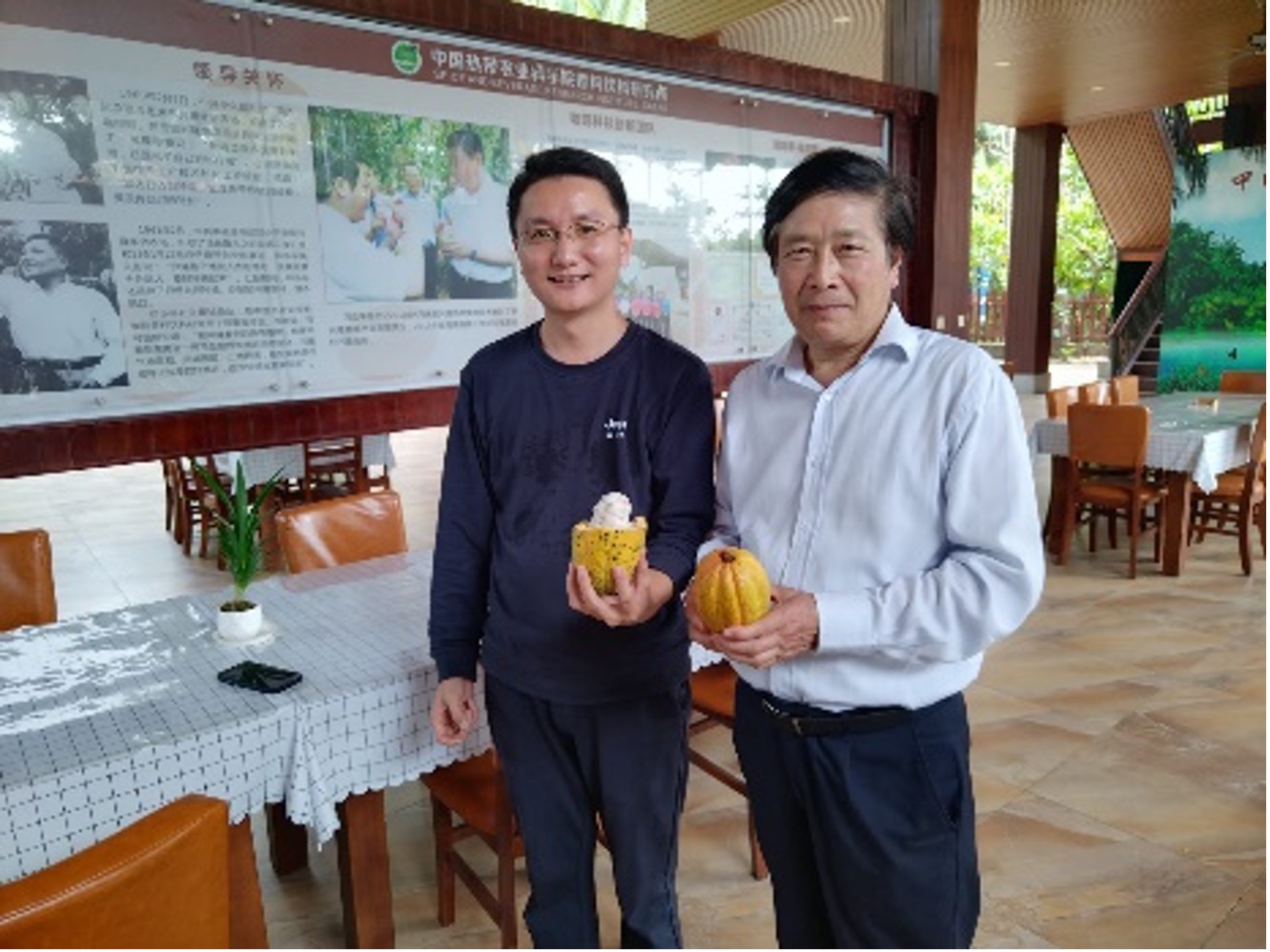 | 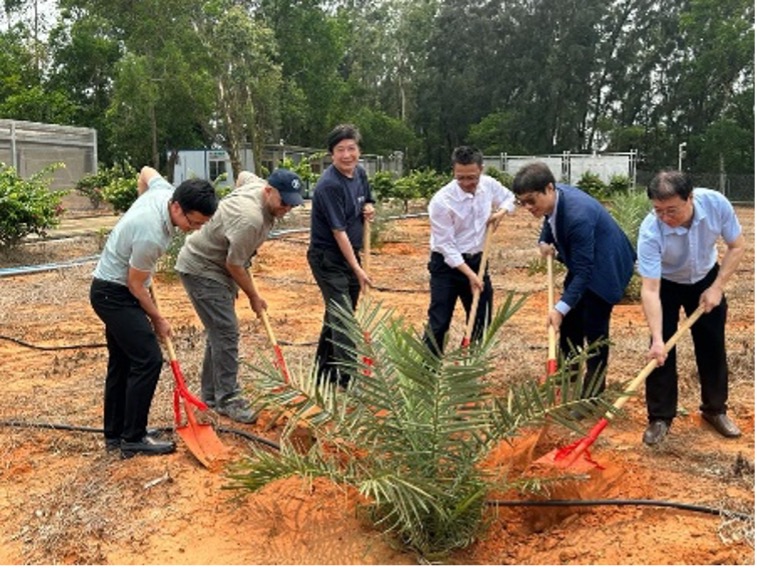 |
Jingyuan Xia with Dr. Li Fupeng, Associate Research Fellow at a CATAS Research Institute | Planting a date palm |
In his welcome remarks, Dr. Sanwen Huang, the President of CATAS, pointed out that CATAS has been cooperating closely with FAO over the past 40 years. In 2014, CATAS was recognized as the "FAO Tropical Agriculture Research and Training Reference Centre” and passed the second phase of recognition in 2019. In 2021, CATAS and FAO signed a Memorandum of Understanding (MoU) which took the cooperation to a new stage. In this framework, CATAS contributed to the formulation of the OCOP Action Plan; conducted regional and country assessments on sustainable value chains of the selected Special Agricultural Products (SAPs); co-organized the three online training sessions about SAPs in the tropics with NSP; and developed reports on the global status and trends relevant to tropical SAPs selected for the OCOP Initiative.
Reflecting on President Huang’s speech, Director Xia stressed that the purpose of this visit was to deepen the understanding of CATAS and explore cooperation between the two parties further. Xia stated that most tropical countries are developing, so advancing tropical agriculture is key to achieving the poverty reduction SDG by 2030. Since the launch of OCOP in 2021, 82 countries have officially applied to promote 53 Special Agricultural Products (SAP), where 64% of the countries and 56% of SAPs are from tropical areas. CATAS has provided professional technical support services to the OCOP Initiative from its early stages. He hopes CATAS can play more roles in the future, to provide technical support for promoting the successful implementation of the OCOP in tropics.
The delegation visited several Research Institutes, germplasm repositories, experimental bases, laboratories and food processing facilities of CATAS in Xinglong, Sanya, Danzhou and Wenchang in Hainan Province. The research and extension work specialism of each Research Institute are highly relevant to the OCOP Initiative. For instance, research at the Tropical Crops Genetic Resource Institute is focused on developing new varieties of cassava, banana, mango, medicinal plants, forage and dryland rice, alongside the promotion the value chains of these products. The Research Institute of Spice and Beverage deals mainly with coffee, cocoa, jackfruit, vanilla and pepper. The Coconut Research Institute is another specialised organisation which has gathered a diversity of species and varieties of coconut, oil palm, date palm and rubber trees. The research of the Institutes of Tropical Bioscience and Biotechnology and the Environment and Plant Protection specialises in developing sustainable plants, environment protection techniques, innovation, and obtaining transgenic plants.
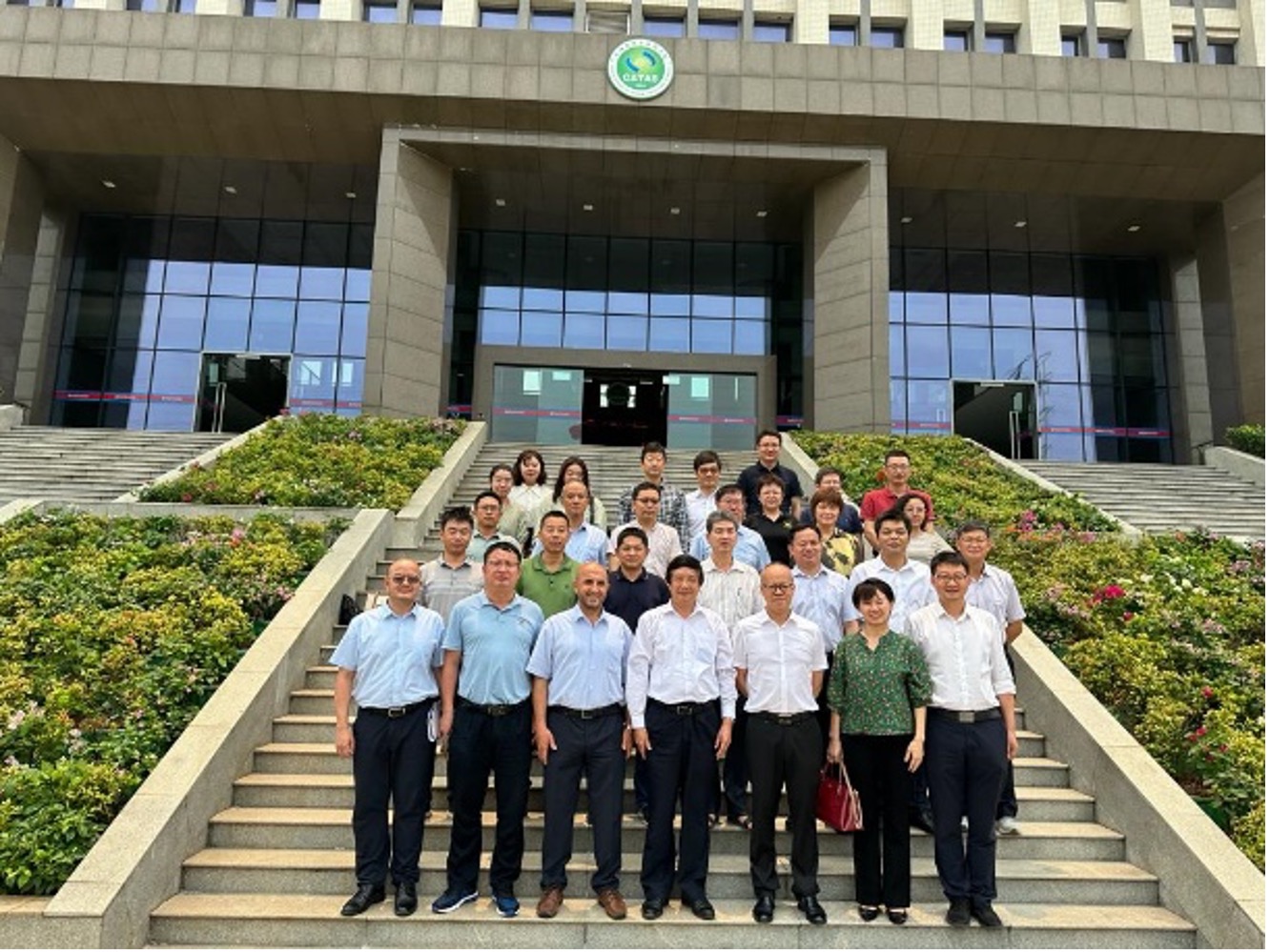
CATAS Team attended the Workshop with the NSP delegation
A workshop was held On 21 April, where the NSP delegation met with the Directors, Deputy Directors and the researchers of the relevant Research Institutes of CATAS to have a major discussion about how and what CATAS can provide the technical support for promoting the OCOP. Director Xia pointed out that since CATAS has established a close and productive collaboration with several lead International Research Centres and many countries located in the tropics, it can play a very important role in supporting the OCOP field projects in the tropics. Thus, Xia urged a closer and deeper collaboration between both sides to promote success in implementing the OCOP Initiative.
In his conclusion remarks, Director Xia stated that the NSP delegation found their visit to CATAS very impressive, informative and inspiring. The solid and rich experience of CATAS in promoting the development of tropical agriculture should be considered for the provision of technical support and contribution to the OCOP projects and activities in the tropics. He also expressed his great appreciation towards CATAS for their excellent organisation and warm hospitality which made this mission very successful, fruitful and memorable.
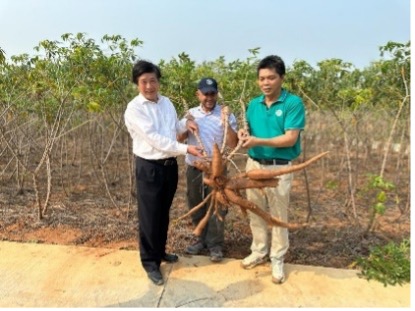 | 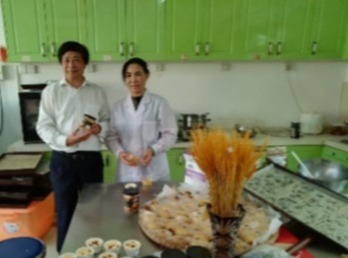 | 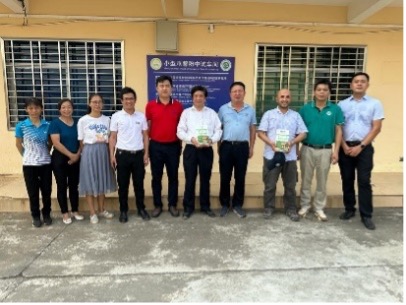 |
High-yield cassava processed into cassava flour for production of baked goods.
